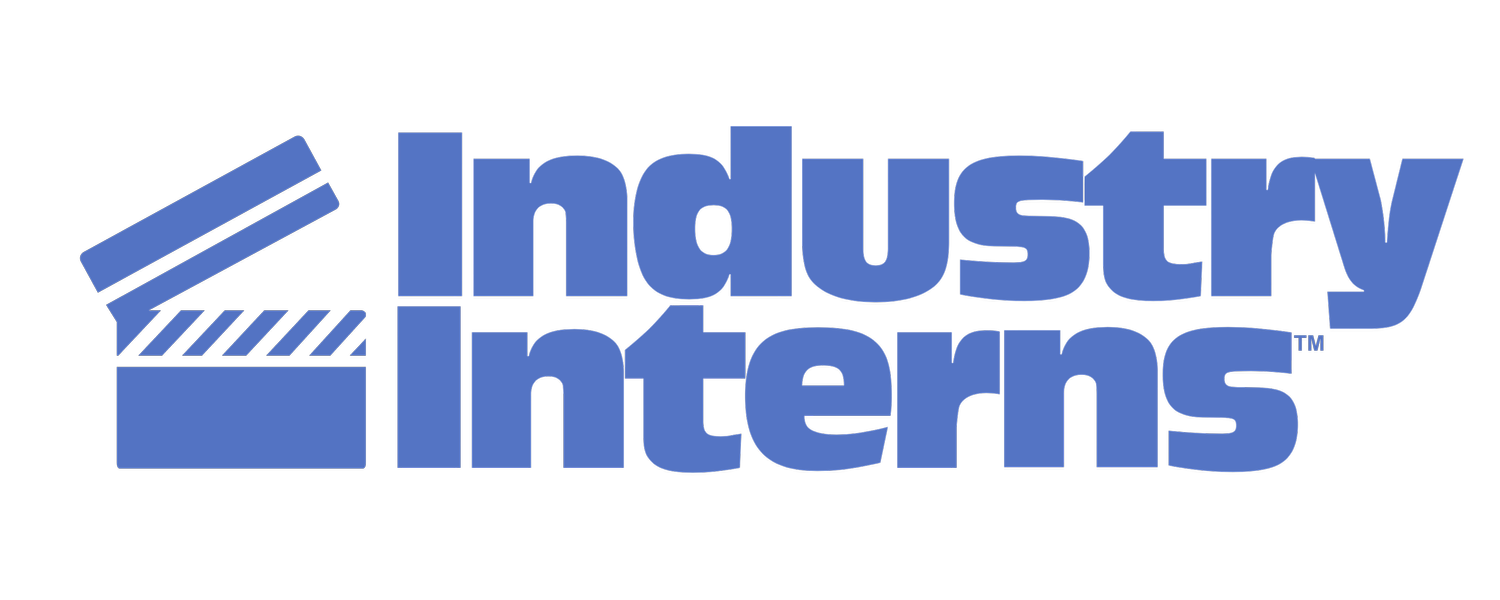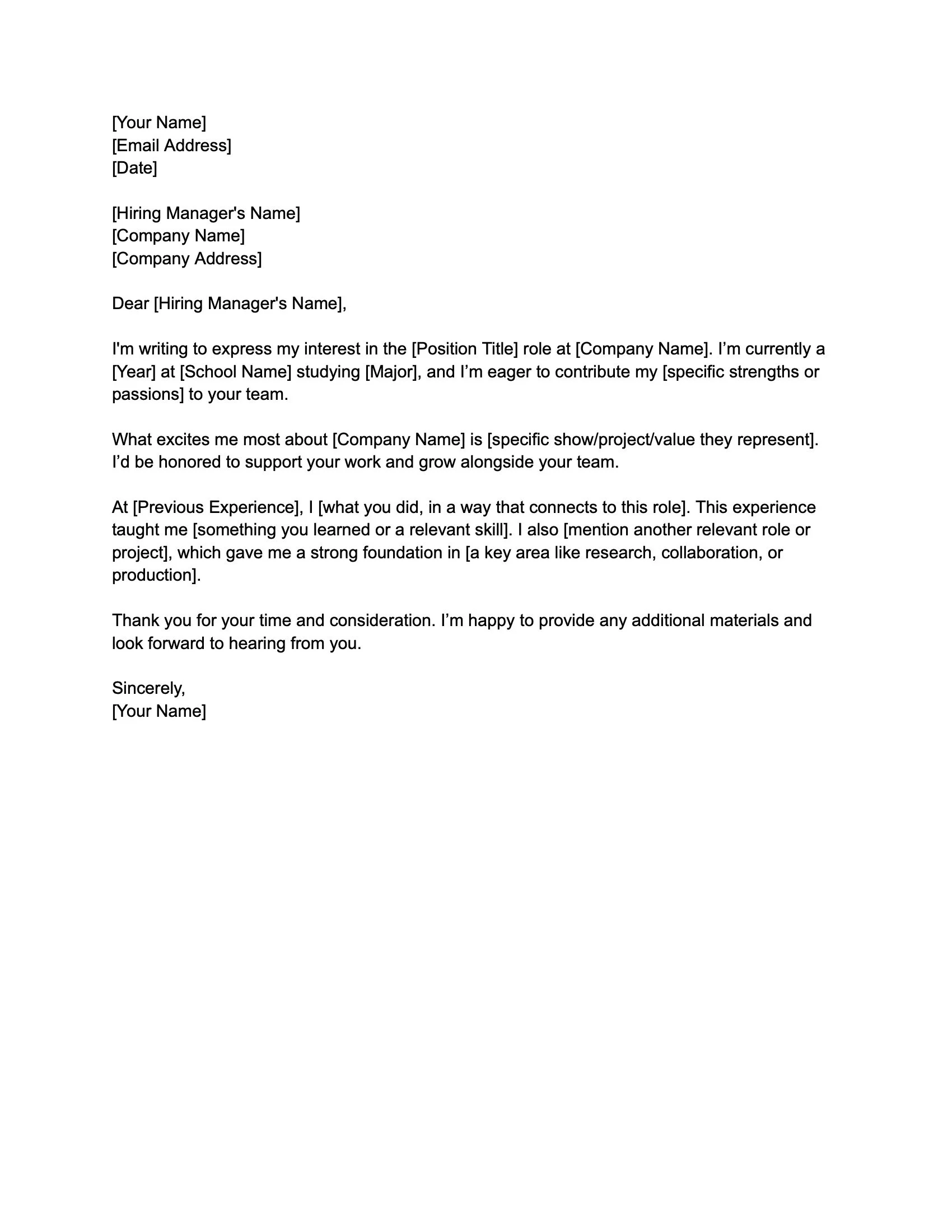Cover Letters
A one page letter that accompanies your resume to further showcase your personality, highlight your skills and explain why you’re the best candidate for the job.
Do cover letters even matter?
Cover letters can be a pain—especially when applying to multiple positions. Almost every application requires one, but do employers even actually read them?
Yes… and no.
Some people skim, others read every word. But if you’re submitting something, assume it will be read— so treat it with the same care as resumes. Keep reading for some tips and tricks to make the process a little less exhausting…
What makes an entertainment industry cover letter different?
Tone matters: Enthusiasm, voice, and personality count more than over rigid formality. Think professional but human.
Keep it SHORT: Aim for 3-4 paragraphs
Customize for the role: A cover letter for an editing internship should sound different than one for stage management or casting or development, etc.
Tips/Unspoken Rules:
-Keep it to one page
-Save as a PDF labeled: FirstLast_CoverLetter
-Match your resume’s font and style
-Avoid cliché buzzwords like “go-getter” and “hard-worker”—try to show through examples instead
-Don’t repeat your resume—expand on 1-2 key highlights that are most applicable to the position you’re applying to with insight/reflection
-Use active voice (“I supported” or “I contributed”)
-If possible, address it to a specific person. Otherwise use: “Hiring Manager", “Hiring Team,” or “To Whom It May Concern”
-Read through the full job descriptions before writing—and consider referencing their mission statement or recent work
Suggested Structure:
INTRODUCTION
Say what you’re applying for (and who recommended you, if applicable). Mention current status (e.g. rising NYU Senior) and express your enthusiasm clearly.
WHY THEM
Show you’ve done your research. Maybe name a specific project, brand, value, or department you’re excited about. This is your chance to connect with the company, beyond just the industry as a whole.
WHY YOU
Highlight 1-2 key experiences and expand on what you learned and how it applies to the role. Focus on relevant skills listed in the job posting.
CLOSING
Reaffirm your interest and express your excitement about the opportunity to contribute. Include availability or any specific logistic requests mentioned in the job posting. Thank them for their time and sign off professionally (e.g., “Sincerely, Your Name”).
Suggested Formatting
-Font size: 10.5-12pt, depending on the font
-Keep margins even (around 1 inch) for both
-Use the same header style (name + contact info) on both documents for a clean match
What if I don’t have any relevant entertainment experience?
That’s okay! It can be hard to hit all of these bullet points especially if you’re early in your college or career journey.
Focus on:
-Your enthusiasm for the role
-Transferable skills from other jobs, clubs, or classes (e.g., communication, time management, teamwork, creative problem-solving, etc.)
-A willingness to learn and support the team however needed
Common Mistakes:
1. TYPOS—especially the wrong company name
2. Making the letter all about how the job will help you instead of how you can help them
3. Copying and pasting the same generic letter to every job*
4. Writing more than one page
Time-Saving Tip:
Keep a running doc with cover letter paragraph options that you can plug in and customize. You’ll often be applying for similar types of roles, so having a strong base to tweak will save time.
JUST REMEMBER TO CHANGE THE COMPANY NAME.
Too many cover letters are addressed to the wrong employer—please double check.

